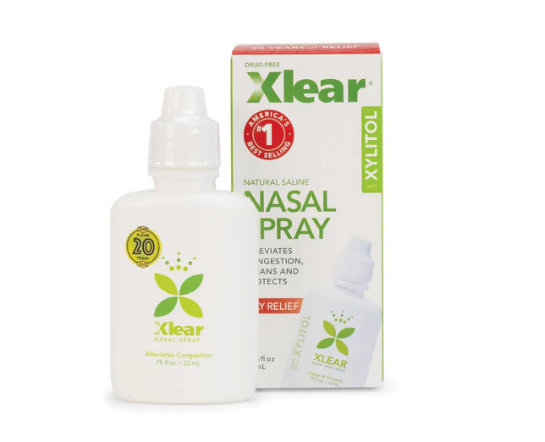Understanding Sinus Nose Spray: A Complete Guide
Posted by Wesley Browder
Filed in Health 7 views
Sinus problems are common and can cause a lot of discomfort. A blocked or congested nose makes it hard to breathe, sleep, or even focus during the day. One of the easiest ways to relieve sinus congestion is by using a sinus nose spray. But with so many options available, it’s important to know how these sprays work, the different types available, and how to use them safely.
What Is a Sinus Nose Spray?
A sinus nose spray is a liquid medication that is sprayed directly into the nostrils to relieve nasal congestion and sinus pressure. The main goal of nasal sprays is to reduce swelling in the nasal passages and help clear mucus buildup. By doing this, they allow air to pass through the nose more freely and make breathing easier.
There are different kinds of nasal sprays for sinus issues, and each one works in a slightly different way. Some sprays provide quick relief, while others are designed for long-term use.
Types of Nasal Sprays for Sinus Problems
Let’s look at the main types of nasal spray for sinus relief and how each one works.
1. Saline Nasal Spray
A saline nasal spray is one of the simplest and safest options for clearing the nose. It contains only salt and water. This type of spray helps moisturize dry nasal passages and wash away dust, allergens, or mucus.
Because it does not contain any medicine, a saline nasal spray can be used by almost anyone, including children and pregnant women. It can also be used daily without side effects.
In humid places like Singapore, people still use saline sprays to keep their nasal passages clean, especially if they have allergies or sinus problems. Many people also do a sinus rinse Singapore using saline solutions to remove irritants from the nose.
2. Decongestant Nasal Spray
Decongestant sprays are made to shrink swollen blood vessels inside the nose. This helps to open up blocked airways and relieve pressure quickly. These sprays usually contain ingredients like oxymetazoline or phenylephrine.
While they work fast, they should only be used for a few days (usually no more than three days in a row). Using them too long can lead to a condition called rebound congestion, where your nose becomes even more blocked once you stop using the spray.
3. Steroid Nasal Spray
Steroid sprays are often recommended for people who suffer from chronic sinusitis or allergies. These sprays help reduce inflammation and swelling in the nasal passages. They may take a few days to start working, but they provide longer-lasting relief.
Steroid sprays are safe when used as directed, but it’s always best to talk to a doctor before using them regularly.
4. Nasal Spray for Kids
Children can also suffer from sinus congestion due to colds or allergies. However, not all sprays are suitable for them. A nasal spray for kids is usually a mild saline spray. It helps loosen mucus and make breathing easier without the risk of side effects.
Parents should always check the label to make sure the spray is made for children. It’s also important to teach kids how to use nasal sprays properly to avoid irritation.
How to Use a Nasal Spray Safely
Using a nasal spray correctly helps you get the best results. Here are a few simple steps to follow:
1. Blow your nose gently before using the spray. This clears the nasal passages.
2. Shake the bottle if the instructions say so.
3. Tilt your head slightly forward.
4. Close one nostril by pressing your finger against it.
5. Insert the nozzle into the open nostril.
6. Spray and breathe in gently through your nose.
7. Repeat for the other nostril if needed.
Always clean the nozzle after each use to prevent infection. Do not share your nasal spray with others.
Benefits of Using a Nasal Spray
· Helps reduce nasal congestion and pressure.
· Keeps nasal passages moist, especially in dry or air-conditioned environments.
· Flushes out allergens, dust, and other irritants.
· Offers quick relief from sinus symptoms.
· Easy and convenient to use, even for children.
When to See a Doctor
While nasal sprays are helpful, they are not a cure for all sinus problems. If you have symptoms like a blocked nose for more than two weeks, facial pain, fever, or thick yellow mucus, you should visit a doctor. You may have a sinus infection that needs medical treatment.
Also, if you find yourself depending on a nasal spray every day, it may be time to get medical advice. Overuse of certain sprays can make symptoms worse over time.
Sinus Rinse in Singapore
In Singapore, where the air can be humid and dusty, sinus rinses are quite popular. A sinus rinse Singapore is a method of cleaning the nasal passages using a saline solution. This can be done with a squeeze bottle or a neti pot.
Sinus rinses help remove mucus, allergens, and bacteria from the nose. Many people use them as part of their daily hygiene routine, just like brushing their teeth.
Final Thoughts
Sinus and nasal sprays are simple but effective tools for managing nasal congestion and sinus pressure. From saline nasal sprays that gently clean your nose to steroid sprays that reduce inflammation, there are many options depending on your needs.
For children, a nasal spray for kids made with a gentle saline solution is often the best choice. And in places like Singapore, where sinus problems are common, regular sinus rinses can help keep the nasal passages clear and healthy.
Using a sinus nose spray properly and understanding its purpose can make a big difference in managing sinus discomfort safely and effectively.
